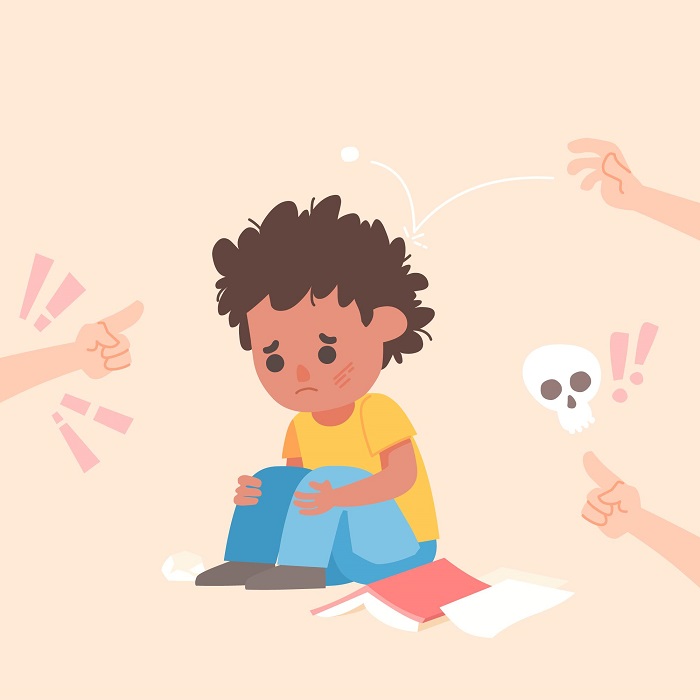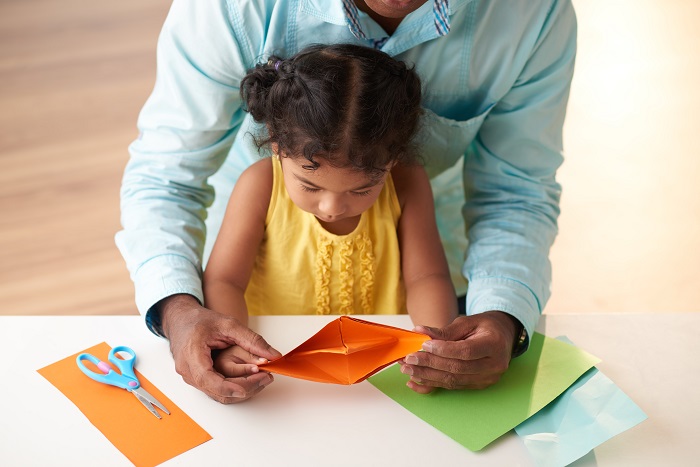Anxiety in kids is not an imaginary or made-up thing. It is a serious concern today and needs to be understood well by parents. This blog will help you know the two most common types of Anxiety in kids – Separation Anxiety and Social Anxiety – and will focus more on this condition concerning preschoolers.
While these types of Anxiety can be expected and developmentally appropriate, they can also become problematic if they persist and interfere with the child’s daily life. Understanding the symptoms, causes, and treatments of separation anxiety and social Anxiety in preschool-aged children can help parents and caregivers provide the support and care that these children need.
What is Separation Anxiety?
Separation anxiety is a commonly observed anxiety in kids that occurs when a child is separated from a parent, caregiver, or another attachment figure. This type of Anxiety is prevalent in preschool children and is part of development. However, it’s time to press the alarm if it starts affecting the kids’ health it’s time to press the alarm.
Common Signs of Separation Anxiety in Kids
- Clinginess: The child may become overly attached to a parent or caregiver and not want to be separated.
- Crying or tantrums: The child may cry or have tantrums when separated from a parent or caregiver.
- Physical complaints: The child may experience physical complaints such as headaches or stomach aches when separated from a parent or caregiver.
- Refusing to go to school or daycare: The child may refuse to go to school or daycare and may need help adjusting to new environments. Read more about the tips for choosing a good daycare centre.
- Nightmares or sleep disturbances: The child may experience nightmares or have trouble sleeping when separated from a parent or caregiver.
- Separation-related fears: The child may express fears related to separation, such as fears of being lost, dying, or being kidnapped.
Causes of Separation Anxiety in Kids can be Multifaceted and Can Arise Due to the Following
- Lack of early childhood attachments: If a child has not had early solid childhood attachments, she may experience more Anxiety when separated from the parent or caregiver.
- Lack of predictability in the child’s routine: Kids thrive on routine and predictability, and when these are disrupted, they may experience Anxiety.
- Changes in the family structure: Separation anxiety may be triggered by changes in the family structure, such as a parent or sibling moving away or the arrival of a new sibling.
- Insecurity and low self-esteem: Children with low self-esteem and a general sense of insecurity may experience more Anxiety when separated from their parents.
What is Social Anxiety?
Another commonly seen form of Anxiety in kids is Social Anxiety. This occurs in social situations, such as being around other children, speaking in front of others, or being in unfamiliar situations. Preschoolers with Social Anxiety may avoid social problems, have difficulty making friends, and experience physical symptoms such as sweating, shaking, or a racing heartbeat in social situations.
Common Signs of Social Anxiety in Kids
- Avoiding social situations: Social Anxiety in kids may force them to avoid social problems, such as playing with other children, speaking in front of others, or being in unfamiliar situations.
- Physical symptoms: Children with Social Anxiety may experience physical symptoms, such as sweating, shaking, or a racing heartbeat, in social situations.
- Difficulty making friends: Making friends or even simple social interaction like saying ‘good morning’ or ‘hello’ might be impossible for kids suffering from Social Anxiety.
- Shyness: Children with Social Anxiety may be excessively shy or withdrawn in social situations.
- Negative self-talk: They may have negative thoughts about themselves and worry about being judged or rejected by others.
- Tantrums or crying: Exhibit extreme distress, such as tantrums or crying, when faced with social situations.
- Refusing to participate: Social Anxiety will push kids suffering from it into a shell. They may refuse to participate in activities or events that involve social interaction.
Causes of Social Anxiety in Kids Can Include
- Lack of early childhood social interactions: Children who have not had many social interactions may experience more Anxiety when exposed to new social situations. Read more about the importance of early-year child education.
- Poor communication skills: Children with poor communication skills may experience Anxiety when placed in social situations because they feel unable to effectively communicate their thoughts and feelings.
- Negative past experiences: Children who have had negative experiences in social situations like bullying may experience Anxiety in future interactions.
- Parental modeling: Children may learn to feel anxious in social situations if their parents exhibit similar anxieties.
- Perfectionism: Children pressured for perfectionism may feel anxious in social situations for fear of not measuring up.
It is important to note that these symptoms can also indicate other issues or intrinsic behavior, like shyness or introversion. If a child is shy, she doesn’t need to be suffering from any anxiety. It is her nature, and that is all right. Medical help is solicited only if the behavior is extreme and not letting the child develop.
Now Let’s See How We Can Address These Anxieties In Kids
- Validate their feelings: Most important. Acknowledge and accept their emotions, letting them know it’s normal to feel anxious in new situations.
- Prepare them ahead of time: Give them a clear understanding of what to expect in a new setting, such as school or a playdate. Even practice, rehearse or role-play.
- Create a comfort item: Encourage them to bring something that makes them feel safe and comfortable.
- Keep goodbyes short and positive: Avoid prolonged goodbyes and make sure they know you’ll be back soon.
- Consistent routine: Children feel more secure when they know what to expect.
- Encourage independence: Gradually giving them responsibilities and opportunities to make decisions can help boost their confidence.
- Be patient: Children develop at their own pace, so be patient and offer support.
- Seek outside help: Early intervention is critical for preventing Anxiety from negatively impacting kids’ health in the future.
Established preschools like EuroKids have educators who are trained to handle kids experiencing these anxieties. Walk into a centre nearby to help deal with this issue. Separation anxiety and Social Anxiety in kids can be painful for both parents and the child. But with the proper support, it can be tackled. The key is to accept it and address it.
















